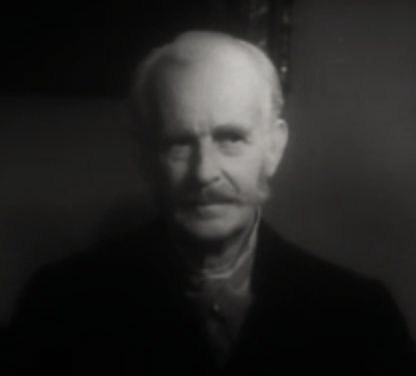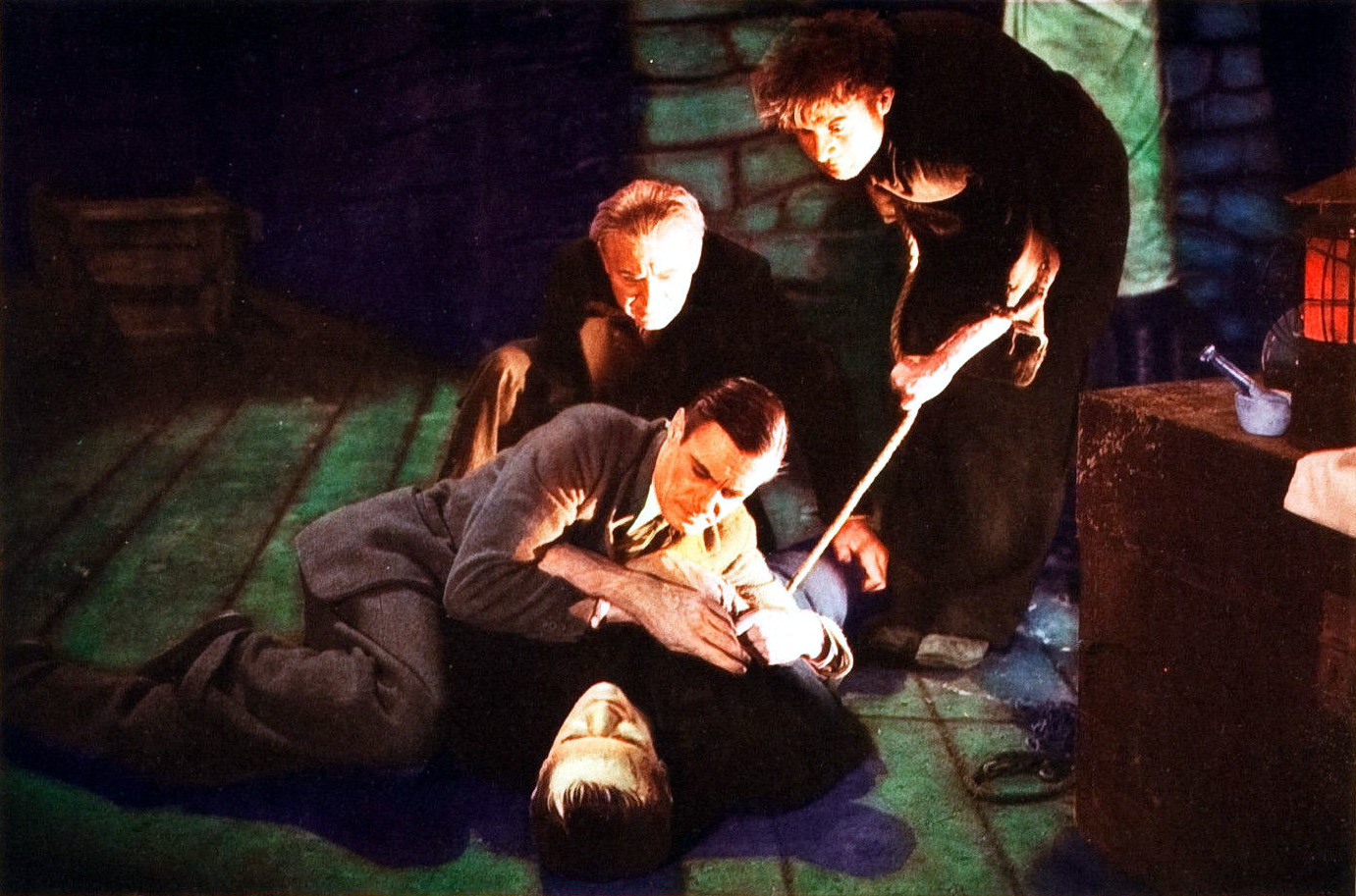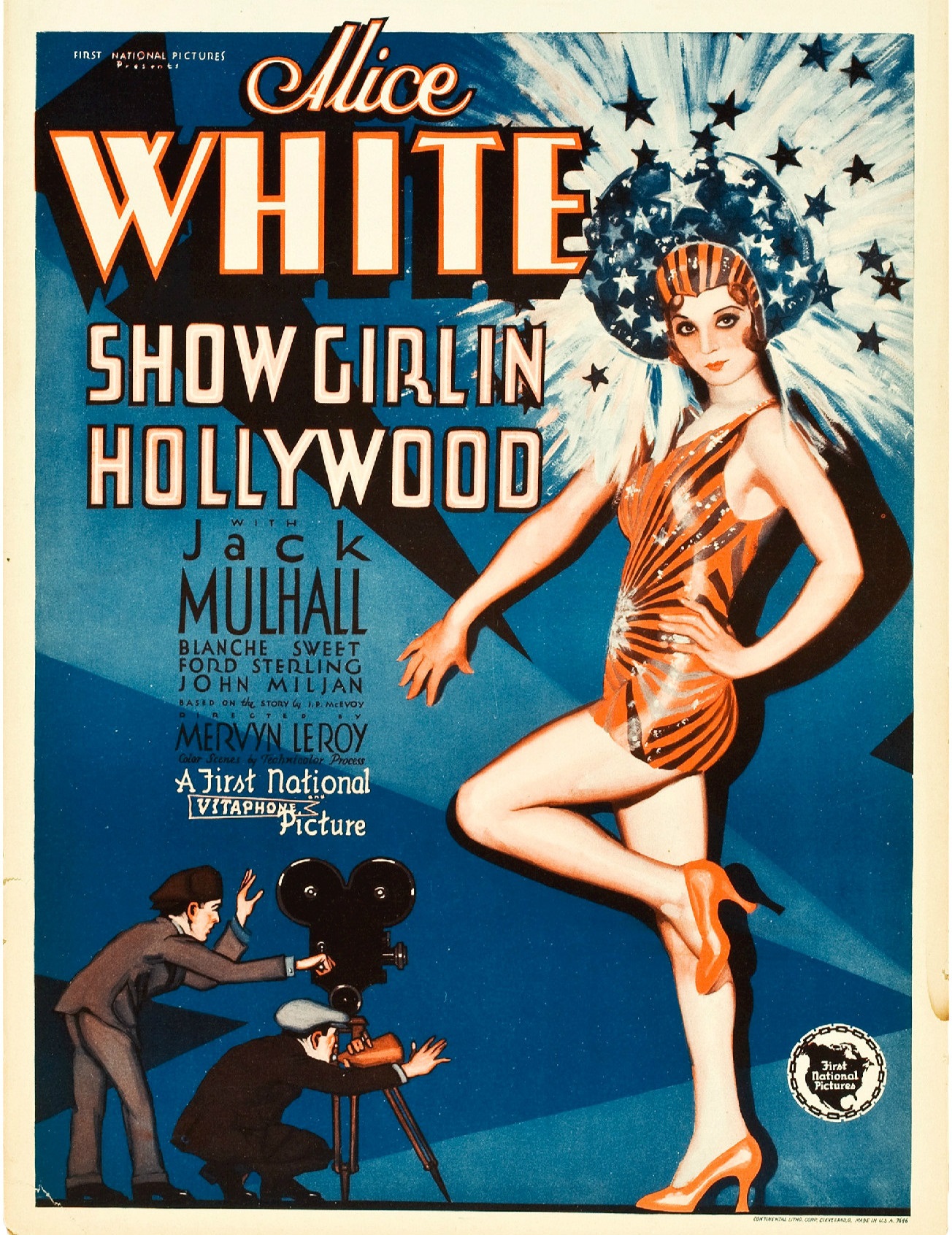|
Gangs Of Chicago
''Gangs of Chicago'' is a 1940 crime film, starring Lloyd Nolan, Barton MacLane, Lola Lane, Ray Middleton, Astrid Allwyn, and Horace McMahon. Alan Ladd has a small uncredited role. Plot After the death of his corrupt father, young Matty Burns enrolls in law school, not to seek justice but to learn how to represent criminal organizations while remaining within the law. He graduates with roommate Bill Whitaker, a judge's son, and is invited to come live at the Whitaker farm, where June Whitaker finds herself attracted to her brother Bill's friend. With a federal agent named Evans keeping a close eye on his activities, Matty becomes the legal mouthpiece of Jim Ramsey, a racketeer. Bill is beseeched by agent Evans to spy on his friend, which he does reluctantly at the urging of his law-abiding dad. Ramsey and his moll, Virginia Brandt, don't trust Bill and spring a trap, catching him red-handed seeking evidence. Bill is seriously wounded by thug Pinky's gunshot and rushed to ... [...More Info...] [...Related Items...] OR: [Wikipedia] [Google] [Baidu] |
Arthur Lubin
Arthur Lubin (July 25, 1898 – May 11, 1995) was an American film director and producer who directed several ''Abbott & Costello'' films, ''Phantom of the Opera (1943 film), Phantom of the Opera'' (1943), the ''Francis the Talking Mule'' series and created the talking-horse TV series ''Mister Ed''. A prominent director for Universal Pictures in the 1940s and 1950s, he is perhaps best known today as the man who gave Clint Eastwood his first contract in film. Early life Arthur William Lubovsky was born in Los Angeles in 1898. His father, William Lubovsky, had come to the US from Poland in 1889. He originally lived in Willsborough, Pennsylvania then moved to California. Lubovsky changed his name to Lubin in honour of filmmaker Siegmund Lubin and became a salesman. Lubin says his father "became quite wealthy" due to his success selling clothes and investments in copper mines in Arizona. His family moved to Jerome, Arizona, when Arthur was five. He was interested in acting at an ear ... [...More Info...] [...Related Items...] OR: [Wikipedia] [Google] [Baidu] |
Howard Hickman
Howard Close Hickman (February 9, 1880 – December 31, 1949) was an American actor, director and writer. He was an accomplished stage leading man, who entered films through the auspices of producer Thomas H. Ince. Career In 1900, Hickman debuted on stage as an extra in a production in San Francisco. He went on to act in repertory theater with the Alcazar Theatre (1885), Alcazar Theatre, Morosco, and Melborne MacDowell companies, among others. On Broadway, Hickman wrote, and portrayed Gabby in, ''The Skirt'' (1921). Hickman's initial work in films was with the Lasky Pictures Company, after which he acted with the Triangle Company and later the Ince company. In 1918, Hickman debuted as a director, with ''The Rainbow'' (for Paralta studios) as his first film. He directed 19 films. With the rise of the sound film, Hickman returned to the film business but received mostly small roles, often as an authoritarian figure. In 1939, Hickman made a brief appearance as plantation owner ... [...More Info...] [...Related Items...] OR: [Wikipedia] [Google] [Baidu] |
1940s English-language Films
Year 194 ( CXCIV) was a common year starting on Tuesday of the Julian calendar. At the time, it was known as the Year of the Consulship of Septimius and Septimius (or, less frequently, year 947 ''Ab urbe condita''). The denomination 194 for this year has been used since the early medieval period, when the Anno Domini calendar era became the prevalent method in Europe for naming years. Events By place Roman Empire * Decimus Clodius Septimius Albinus Caesar became a Roman Consul. * Battle of Issus: Septimius Severus marches with his army (12 legions) to Cilicia, and defeats Pescennius Niger, Roman governor of Syria. Pescennius retreats to Antioch, and is executed by Severus' troops. * Septimius Severus besieges Byzantium (194–196); the city walls suffer extensive damage. Asia * Battle of Yan Province: Warlords Cao Cao and Lü Bu fight for control over Yan Province; the battle lasts for over 100 days. * First year of the ''Xingping'' era during the Han Dyn ... [...More Info...] [...Related Items...] OR: [Wikipedia] [Google] [Baidu] |
American Black-and-white Films
American(s) may refer to: * American, something of, from, or related to the United States of America, commonly known as the "United States" or "America" ** Americans, citizens and nationals of the United States of America ** American ancestry, people who self-identify their ancestry as "American" ** American English, the set of varieties of the English language native to the United States ** Native Americans in the United States, indigenous peoples of the United States * American, something of, from, or related to the Americas, also known as "America" ** Indigenous peoples of the Americas * American (word), for analysis and history of the meanings in various contexts Organizations * American Airlines, U.S.-based airline headquartered in Fort Worth, Texas * American Athletic Conference, an American college athletic conference * American Recordings (record label), a record label that was previously known as Def American * American University, in Washington, D.C. Sports tea ... [...More Info...] [...Related Items...] OR: [Wikipedia] [Google] [Baidu] |
Films Produced By Robert North
A film, also known as a movie or motion picture, is a work of visual art that simulates experiences and otherwise communicates ideas, stories, perceptions, emotions, or atmosphere through the use of moving images that are generally, since the 1930s, synchronized with sound and (less commonly) other sensory stimulations. Etymology and alternative terms The name "film" originally referred to the thin layer of photochemical emulsion on the celluloid strip that used to be the actual medium for recording and displaying motion pictures. Many other terms exist for an individual motion-picture, including "picture", "picture show", "moving picture", "photoplay", and "flick". The most common term in the United States is "movie", while in Europe, "film" is preferred. Archaic terms include "animated pictures" and "animated photography". "Flick" is, in general a slang term, first recorded in 1926. It originates in the verb flicker, owing to the flickering appearance of early films ... [...More Info...] [...Related Items...] OR: [Wikipedia] [Google] [Baidu] |
American Crime Drama Films
American(s) may refer to: * American, something of, from, or related to the United States of America, commonly known as the "United States" or "America" ** Americans, citizens and nationals of the United States of America ** American ancestry, people who self-identify their ancestry as "American" ** American English, the set of varieties of the English language native to the United States ** Native Americans in the United States, indigenous peoples of the United States * American, something of, from, or related to the Americas, also known as "America" ** Indigenous peoples of the Americas * American (word), for analysis and history of the meanings in various contexts Organizations * American Airlines, U.S.-based airline headquartered in Fort Worth, Texas * American Athletic Conference, an American college athletic conference * American Recordings (record label), a record label that was previously known as Def American * American University, in Washington, D.C. Sports team ... [...More Info...] [...Related Items...] OR: [Wikipedia] [Google] [Baidu] |
Films Directed By Arthur Lubin
A film, also known as a movie or motion picture, is a work of visual art that simulates experiences and otherwise communicates ideas, stories, perceptions, emotions, or atmosphere through the use of moving images that are generally, since the 1930s, synchronized with sound and (less commonly) other sensory stimulations. Etymology and alternative terms The name "film" originally referred to the thin layer of photochemical emulsion on the celluloid strip that used to be the actual medium for recording and displaying motion pictures. Many other terms exist for an individual motion-picture, including "picture", "picture show", "moving picture", "photoplay", and "flick". The most common term in the United States is "movie", while in Europe, "film" is preferred. Archaic terms include "animated pictures" and "animated photography". "Flick" is, in general a slang term, first recorded in 1926. It originates in the verb flicker, owing to the flickering appearance of early films. ... [...More Info...] [...Related Items...] OR: [Wikipedia] [Google] [Baidu] |
1940 Crime Drama Films
Year 194 ( CXCIV) was a common year starting on Tuesday of the Julian calendar. At the time, it was known as the Year of the Consulship of Septimius and Septimius (or, less frequently, year 947 ''Ab urbe condita''). The denomination 194 for this year has been used since the early medieval period, when the Anno Domini calendar era became the prevalent method in Europe for naming years. Events By place Roman Empire * Decimus Clodius Septimius Albinus Caesar became a Roman Consul. * Battle of Issus: Septimius Severus marches with his army (12 legions) to Cilicia, and defeats Pescennius Niger, Roman governor of Syria. Pescennius retreats to Antioch, and is executed by Severus' troops. * Septimius Severus besieges Byzantium (194–196); the city walls suffer extensive damage. Asia * Battle of Yan Province: Warlords Cao Cao and Lü Bu fight for control over Yan Province; the battle lasts for over 100 days. * First year of the ''Xingping'' era during the Han Dynasty in ... [...More Info...] [...Related Items...] OR: [Wikipedia] [Google] [Baidu] |
Dwight Frye
Dwight Iliff Frye (born Fry; February 22, 1899 – November 7, 1943) was an American character actor of stage and screen. He is best known for his portrayals of neurotic, murderous villains in several classic Universal horror films, such as Renfield in ''Dracula'' (1931) and Fritz in ''Frankenstein'' (1931). Biography Early life and career Frye was born in Salina, Kansas, and studied for a career in music and first appeared as a concert pianist. In the 1920s, he made his name as a stage actor, often in comedies. In 1924, he played the Son in a production of Luigi Pirandello's ''Six Characters in Search of an Author''. While he had a few minor comedic roles in silent pictures, with the coming of sound Frye soon became known for playing villains. Frye specialized in the portrayal of mentally unbalanced characters, including his signature role, the madman Renfield in Tod Browning's 1931 version of ''Dracula''. Later that same year, he played the hunchbacked assistant Fri ... [...More Info...] [...Related Items...] OR: [Wikipedia] [Google] [Baidu] |
Addison Richards
Addison Whittaker Richards, Jr. (October 20, 1902 – March 22, 1964) was an American actor of film and television. Richards appeared in more than 300 films between 1933 and his death in 1964. Biography A native of Zanesville, Ohio, Richards was the son of Mr. and Mrs. Addison Richards. His grandfather was a mayor of Zanesville. Following his father's death, the family moved to California. Richards graduated with a bachelor of arts degree from Washington State College. Stage and screen In 1931 Addison Richards joined the Pasadena Playhouse as actor and associate director. He entered motion pictures in 1933. Warner Bros. signed him to a nonexclusive five-year contract in 1934, and he appeared steadily in that studio's feature films. His dignified, businesslike demeanor established him as a character actor, and he almost always played professional men of authority: doctors, attorneys, judges, executives, military officers, legislators, prison wardens, etc. Richards became such ... [...More Info...] [...Related Items...] OR: [Wikipedia] [Google] [Baidu] |
Robert North (producer)
Robert North (February 2, 1884 – August 13, 1976) was an American vaudeville performer who became a success as a stand-up comedian. Later he became a prolific motion picture producer. Early years Bobby North was born in New York City. He joined a vaudeville company at the age of twelve as a boy balcony singer. As North explained, "... there was a vogue of a soubrette, as we called her, singing on the stage, and a kid would get up from the gallery and sing the chorus. The Gallery Gods, of course, thought he was one of them and applauded loudly. I was the kid in the gallery. I had the voice and I could sing." North traveled around the US with the company playing in small town opera houses or theaters for one- or two-night stands. He developed a song and dance act. Theater success In January 1909 North performed as a "Hebrew impersonator" at the Colonial Theatre in New York. In this act he told humorous stories with a Jewish accent and sang parodies of popular songs. He w ... [...More Info...] [...Related Items...] OR: [Wikipedia] [Google] [Baidu] |





